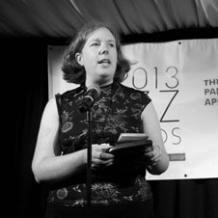Call for Papers “Documenting Jazz 2020”
Date & Time:
16th January, 09:00
Location:
Birmingham City University
Information:
Documenting Jazz takes place 16–18 January, 2020.

Birmingham City University is pleased to announce the Call for Papers for the Documenting Jazz conference, to be held on 16–18 January 2020. Now in its second year, Documenting Jazz brings together colleagues from across the academic, archive, library, and museum sectors to explore and discuss documenting jazz. Since its first edition in Dublin 2019, the Documenting Jazz Conference aims to offer an unparalleled variety of experiences drawn from across the world. We hope to include contributions from individuals of all career stages, from established scholars and practitioners to those just starting their careers. We embrace the academic sector and other heritage and cultural organisations in partnership with each other and with communities. Our keynote speakers are drawn from across the academic sector to inspire debate and discussion amongst participants.
In ‘Ways of Seeing’, John Berger argues that though every image embodies a way of seeing–every photograph is the photographer’s selection from an infinite number of other sights–so too our perception of an image changes with our personal way of seeing. The act of documenting jazz embodies ways of documenting that reflect assumptions about the past. As changes in technology, cultures and economies have profoundly influenced and affected our perception of music, alternative ‘ways of documenting jazz’ must be considered, explored, and discussed.
Documenting Jazz 2020 invites proposals on this year’s theme of ‘ways of documenting jazz’, either individual or collaborative projects. The programme committee welcomes submissions focusing on ‘ways of documenting jazz’ as visual culture, and its distinct representations: photography, press, cinema, television, and web. We also invite proposals that address ways of documenting that challenge the traditional narratives surrounding jazz as a male-dominated domain.
This year’s conference also aims to consolidate discussions around issues of gender, and the way those have been documented or marginalised in this music history. While not restricted to these themes, we invite submissions that address critical ways of documenting jazz around the following areas:
Jazz in Photography;
Jazz in the Press;
Jazz on/in Cinema;
Jazz on/in Television;
Jazz online.
Keynote Speakers

Kristin McGee
‘Gendering Jazz in Film and Television: Alternative Ways of Seeing and Hearing the Jazz Past’
Kristin McGee is Associate Professor in Popular Music Studies in the Arts, Culture and Media Department at the University of Groningen in the Netherlands. She teaches on various subjects including popular music theory, jazz, gender and sexuality within popular music, music and globalization, critical race theory, audiovisual arts cultures, film music, and music event organization. She is also the current chair of the International Association for the Study of Popular Music Benelux. She has written on the subject of jazz, gender, popular music and audiovisual media within a variety of articles and books, including her monograph Some Liked It Hot: Jazz Women in Film and Television (Wesleyan University Press, 2009). She has co-edited the series Making Lemonade: Finding Art, Activism, and Community with Beyoncé in Troubled Times with C. Baade and M. Smith (Wesleyan University Press, in press). Her book Remixing European Jazz Culture for Routledge’s Transnational Studies in Jazz series is currently in press.

Catherine Tackley
‘Seeing Jazz: the visual documentation of jazz in interwar British popular culture’
Professor Catherine Tackley (née Parsonage) joined the University of Liverpool in August 2016 as Head of the Department of Music, having worked previously at The Open University and Leeds College of Music. Catherine has written two books – The Evolution of Jazz in Britain: c. 1880-1935 (Ashgate, 2005) and Benny Goodman’s Famous 1938 Carnegie Hall Jazz Concert‘ (OUP, 2012) – and co-edited Black British Jazz: Routes, Ownership and Performance (Ashgate, 2014). In 2018, Catherine curated ‘Rhythm and Reaction: The Age of Jazz in Britain’, an acclaimed exhibition in London based on her research. From 2012 to 2014 she was Principal Investigator of the AHRC Research Networking project ‘Atlantic Sounds: Ships and Sailortowns’, and continues to work on music and seafaring. Catherine is Musical Director of Dr Jazz and the Cheshire Cats Big Band.
Within this year’s theme proposals are invited in the following formats:
- Individual papers (20 mins duration plus 10 mins Q&A, up to 250-word abstract).
- Joint papers (max 2 speakers, same format as above).
- Themed sessions (3 papers totalling 90 mins, up to 250 words per paper plus 250 outlining content and rationale for the session).
- Round-table discussions (90 mins, max. 6 speakers. Up to 750 words outlining the format, content and rationale for the session).
- Posters (up to 250-word abstract).
Proposals should include:
Title for the paper and/or session. Name, contact details and affiliation of the speaker(s). In the case of themed sessions and round-table sessions, the panel convenor, and a brief biography of the speaker(s) (100 words per speaker).
Please send to Dr Pedro Cravinho: pedro.cravinho@documentingjazz.com by 11 August 2019. The programme committee will examine all abstracts by 1 September 2019, and contributors will be informed immediately thereafter.
